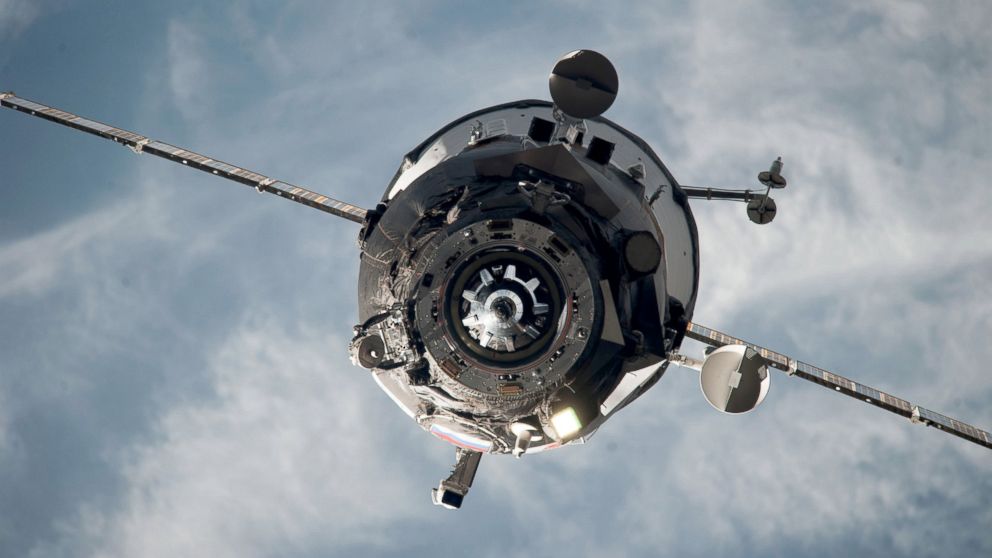Russian Spacecraft Expected to Fall to Earth in Next Few Weeks
Progress spacecraft and cargo will burn up when it re-enters Earth's atmosphere.

— -- A Russian spacecraft is being written off as a loss and is expected to fall to Earth sometime in the next two weeks after a series of system failures sent it on an uncontrolled spin through space.
The Progress spacecraft launched Tuesday on what was supposed to be a six-hour journey to the International Space Station to deliver supplies. After liftoff, several navigational antennas on the spacecraft failed to deploy and problems were reported with the propulsion system, according to NASA.
Attempts to issue commands to the spacecraft as it passed over Russian ground control stations have been unsuccessful, prompting officials to call off any additional attempts to regain control.
Russian officials, along with their counterparts at NASA and the European Space Agency, are tracking Progress and said they plan to provide more updates when it becomes apparent where and when the vehicle will re-enter Earth's atmosphere.
The break-up of the spacecraft won't present a threat to the International Space Station, NASA said.
On board Progress are 6,000 pounds of food, fuel and supplies for the six astronauts at the International Space Station. The spacecraft and the cargo are expected to burn up completely during re-entry, officials said.
The next supply run to space will be in June when SpaceX's Dragon, which is currently berthed at the International Space Station, makes another trip.
This is the second issue with space cargo runs in the past seven months.
Last October, an Antares rocket exploded shortly after launch, destroying thousands of pounds of cargo on board Orbital Sciences' Cygnus spacecraft.




